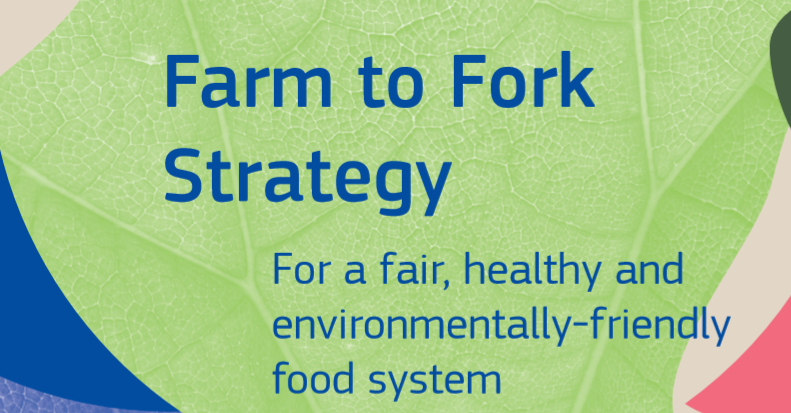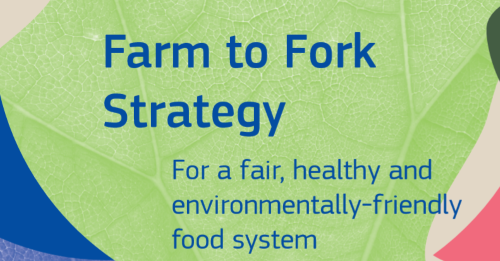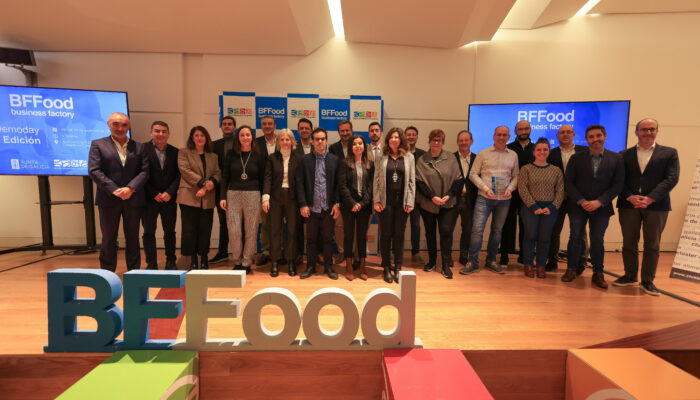
The European Commission’s ‘Farm to Fork’ strategy aims at achieving a more sustainable agricultural production by reducing, among others, nutrients losses, both mineral and organic, in the environment. This strategy will try to promote a healthier and more sustainable diet throughout the continent.
The European Strategy Farm to Fork will act as a benchmark for future environmental regulations and policies such as the Common Agricultural Policy (CAP). This strategy aims at promoting circular economy by reducing the environmental impact of the food production and cutting down the percentage of food waste. This strategy will also help to foster a greater support for small producers and encourage local and proximity business. To further boost this initiative, food labelling will provide more information about the product´s origin and it will include new concepts such as landscape protection carried out by small producers. New labelling will also try to increase the level of innovation and digitalization in the agrifood chain.

For small producers, this strategy will imply a bigger support for their agricultural holdings. It will also boost local and proximity commerce and it will modify the requirements for food labelling, including information about the product´s origin and the benefits of family agriculture. This strategy does also aims at preserving the affordability of these products while creating a fairer economic return for producers. In short, this strategy will boost competitiveness, promote fair trade and create new business opportunities while ensuring the integrity of a single market as well as health and safety in the workplace.
To summarize, we highlight below the mains impacts for each stakeholder group:
For farmers (agriculture and ranching):
- Significantly reduce up to 50% the use of chemical pesticides, fertilizers by 20% and antibiotics in livestock farming by 50%.
- Promote circular economy while reducing the environmental impact of food production and cutting down the percentages of food waste.
- Ensure that at least 25% of the overall EU´s agricultural area is dedicated to organic food production by 2030.
- Take measures to reduce nutrient losses to ensure the reduction fertilizers used by 2030.
- The CAP will guide the transformation of farming systems by supporting innovative solutions and demanding sustainable production practices.
- Facilitate the commercialization of sustainable and innovative food additives that will help reducing the GHG food print associated with these products, as well as air and water pollution.
- Review EU standards to reduce dependency on critical food products (such as soy grown on deforested land) by promoting EU-grown vegetable proteins and alternative foods such as insects, seafood stock and bio economy by-products.
- Take actions to reduce antibiotics sales for farmed animals and aquaculture by 2030. The new regulations on veterinary drugs and medicinal feed will offer a wide range of measures to address this issue.
For consumers:
- Take measures to support Member States to stimulate the general demand of organic products and ensure consumer trust and engagement by, for example, promotional campaigns and Green public procurement.
- Stop promoting meat consumption.
- Adopt tax incentives to encourage consumers to choose sustainable and healthy diets.
For industry and distribution:
- Develop an EU code of conduct for responsible business and marketing practices as well as a monitoring framework.
- Ensure that affordability food campaigns do not undermine citizens´ perception on the food value.
- Improve the corporate governance frameworks in all industries and, following this logic, include a possible requirement for the food industry to integrate sustainability into their corporate strategies.
- Establish nutrient profiles that restrict the promotion (through nutritional or health claims) of foods rich in fats, sugar and salt. This strategy will propose banning added sugar in baby food and explore the possibility of setting maximum levels for sugar, saturated fats and salt in certain processed foods.
- Take measures to expand and promote sustainable production methods and circular business models in food processing and retail.
- Review marketing standards to ensure the uptake and supply of sustainable agricultural, fishery and aquaculture products, taking into account the possible impact of these standards on food loss and waste.
- Add extensive and clear food information on sustainability. Approve a possible labelling framework that covers the nutritional, climatic, environmental and social aspects of food production.
For administrations
- Promote healthy and sustainable diets for institutional restoration.
- Research, innovation, technology, advisory services, data exchange, knowledge and skills.
- Promote appropriate schemes (including an EU sustainable food labelling framework) to encourage third countries to ensure that all EU food exports are produced in a sustainable way.
Feuga participates in several EU projects related with his strategy: SoildiverAgro, Roadmap and TropicSafe.



